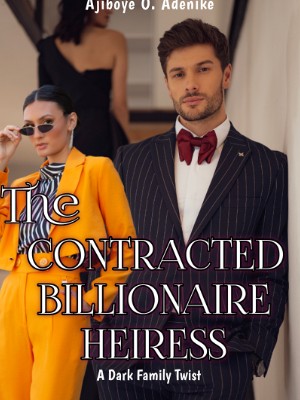This is a story that started from the 195s in Hong Kong, a turbulent and unpredictable era.
Hong Kong in the 195s saw rapid economic and social development, becoming one of the wealthiest, most economically advanced, and highest standard of living regions in the world. The highest price of land in Hong Kong was 251.44 dollars per square foot, the population soared to 1.5 million, foreign capital poured in, population surged, and the prosperity and rise of the real estate industry was becoming evident.
In the 195s, Hong Kong gradually shifted from a trading port to an industrialized city. With the rise of the real estate industry, industry was also stimulated. Countless funds flowed into Hong Kong from various directions to develop industry. By the late 195s, Hong Kong's symbol changed from sailboats to skyscrapers, representing the replacement of the shipping industry with the real estate industry as the new standard of Hong Kong.
In the 195s, a newly appointed uniformed police officer in Hong Kong earned 120 dollars per month. However, a low-ranking uniformed officer could take home a minimum of 300 Hong Kong dollars every month. The Hong Kong Police Force's crime-solving rate steadily stood at 6% to 10%. Throughout the 195s, the Hong Kong Police Force reported over 100,000 crimes each year, presenting a chaotic state. Every mid-year and year-end when cases were archived, hundreds of people would queue outside the police station, all dependent on performing criminal substitution for a living.
In the 195s, the title of Miss Hong Kong was not just for locals' entertainment. It was an Asia's top beauty pageant that could connect Hong Kong with the world. The winner of Miss Hong Kong could participate in the Miss World competition in the United States and could be signed by a major Hollywood movie company for six months of professional film acting training. They received a weekly salary of 250 US dollars. At that time, a Ford luxury car from a Hong Kong car shop was sold for 2,000 US dollars. Miss Hong Kong of that era, regardless of background, could also be a tea house waitress and wear the champion laurel wreath, becoming a star pursued by thousands of people.
In the 195s, singers in Hong Kong were still referred to as songstresses and did not have their concerts. Night clubs, bars, and dance halls were the venues for their performances. Fans then had a unified name, the Uncle Young Group. The singers not only compared singing skills and popularity but also compared the size of their Uncle Young Groups. After singing, they would actively go deal with Uncle Young Groups' banquets and toasts, an act known in the industry as mountain worship. At that time, members of the Uncle Young Groups, all wealthy nobles, supported their singers by occupying all front-row seats all year round, going to scenes regardless of wind or rain, and often competed with Uncle Young Groups of other singers by spending lavishly.
In the 195s, dancers in Hong Kong could hold a strike, causing all night clubs in Hong Kong to lose their dancers. They demanded that night club bosses raise their salaries and benefits. If customers drunkenly beat up the dancers and the club owner did not stand up for them, then they should not dream about hiring dancers again.
In the 195s, no one called themselves Hong Kongese except for the native residents of the New Territories. Chaozhou people, Shunde people, Huzhou people, Fujian people, all had their business associations and leads. Often, there was no need to call the police. Just greeting the business association chairman or the boss would solve problems naturally. Even when fights, gang fights, deaths, and injuries occurred, they did not take advantage of their fellow countrymen.
In the 195s, the world's top brands had not yet landed in Hong Kong. Those with a little money who wanted to wear foreign clothes had to go to foreign clothing stores for tailor-made clothes. The real wealthy Chinese would travel yearly to Shanghai to hire barbers and tailors for bespoke clothes. At that time, a barbershop in Hong Kong that hung the Shanghai sign would be busy from morning to night. A barber could earn up to 300 Hong Kong dollars a day, including tips, which was higher than many people's monthly salary.
In the 195s, the number of factories in Hong Kong increased from 1,478 to 8,809 in ten years, and the number of workers increased from 80,000 to 370,000. Countless tycoons rose from it, in finance, textiles, shipping, entertainment, newspapers, toys, wigs, clothing, and then became industry leaders.
In the 195s, Hong Kong was next to Macau, a lawless area. A group of Kuomintang deserters formed a gang of fierce bandits who plundered merchant ships in the sea area between the two places. They were fierce and well-armed and were known as "Big Sky Two" at that time.
In the 195s, people in Hong Kong valued loyalty and kept promises. When they first came to Hong Kong and knew no one, they could seek help with their hometown accent in the tea house, and there would be fellow townsmen to help with their studies, job hunting, accommodation, and relatives. Everything would be properly handled.
In the 195s, there were 1,700 rickshaws running on the streets of Hong Kong, competing with the clanging Hong Kong trams and emerging bus services. The tram fare was six cents per person, and six cents at that time were enough to buy a bowl of blood porridge and two fried dough sticks. To compete with the emerging transportation tools, the rickshaw once had a promotion of going around Hong Kong for five cents, forcing the Hong Kong government to stop issuing rickshaw licenses and limit the routes of rickshaws.
In the 195s, young men in Hong Kong were expected to either join the police school or a gang or both. Only those who were rejected by both went to work in factories. Working diligently in a factory was considered a sign of lacking ambition. Back then, parents would rather let their daughter be a wealthy man's concubine than marry a poor boy. It was an era that allowed polygamy.
In the 195s, when strolling down the streets of Hong Kong, you'd invariably encounter elegant women known as "beauty dames". Some were dressed in radiant cheongsams coupled with glass silk stockings and brightly colored high-heeled leather shoes, while others wore homemade floral waist-tightened, narrow-sleeved blouses, paired with powdered Tang-style pants resembling skirts. Walking barefoot on high-heeled golden lacquerwood clogs, they brushed past you, imbued with infinite charm. Perhaps, they even left a faint scent of "Kwong Sang Hong" floral dew on your nose tip, which lingered in your heart just like their enchanting allure.
The 195s was a time in Hong Kong when countless tycoons were yet to make their mark, and numerous beauties and talents were still in their prime.
It was a time when black and white colluded, and the order was chaotic. No one had yet established the rules between right and wrong.
In this tumultuous era, there was a man named Song Tianyao who had traversed time.
This story begins in 1951 when he was turned down at the age of eighteen after applying to the Hong Kong Royal Police Academy...



